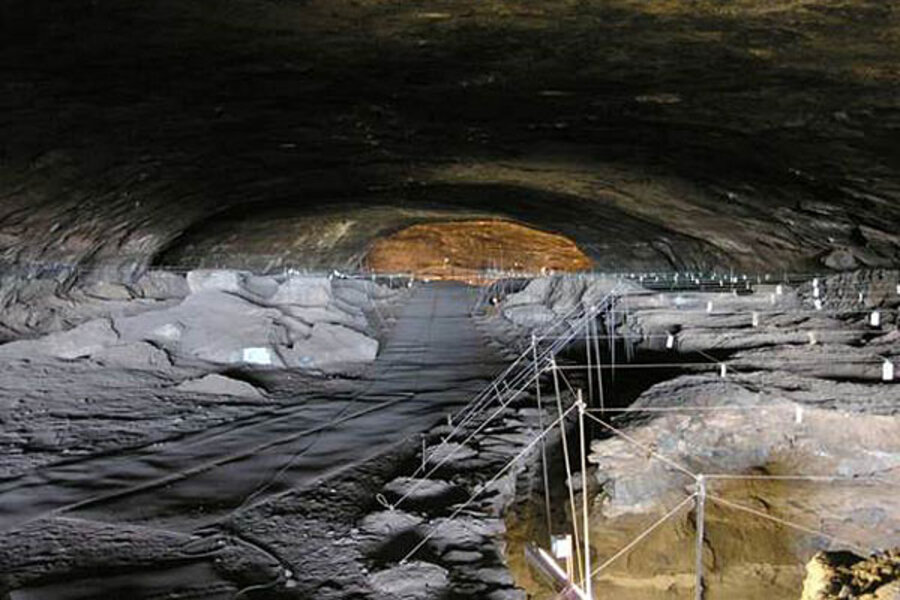Human ancestors used fire a million years ago, finds study
Ash and charred bone, the earliest known evidence of controlled use of fire, reveal that human ancestors may have used fire a million years ago, a discovery that researchers say will shed light on this major turning point in human evolution.
Scientists analyzed material from Wonderwerk Cave in South Africa, a massive cavern located near the edge of the Kalahari Desert. Previous excavations there had uncovered an extensive record of human occupation.
Microscopic analysis revealed clear evidence of burning, such as plant ash and charred bone fragments. These materials were apparently burned in the cave, as opposed to being carried in there by wind or water, and were found alongside stone tools in a layer dating back about 1 million years. Surface fracturing of ironstone, the kind expected from fires, was also seen.
Although modern humans are the only human species alive today, originating about 200,000 years ago, other human species once roamed the Earth, such as Homo erectus, which arose about 1.9 million years ago. [10 Things That Make Humans Special]
"The analysis pushes the timing for the human use of fire back by 300,000 years, suggesting that human ancestors as early as Homo erectus may have begun using fire as part of their way of life," said researcher Michael Chazan, a paleolithic archaeologist at the University of Toronto and director of the university's archaeology center.
The research team's analysis suggests that materials in the cave were not heated above about 1,300 degrees Fahrenheit (700 degrees Celsius). This is consistent with preliminary findings that grasses, brushes and leaves were burned for these fires — such fuel would not have been capable of hotter flames.
Fire would have helped early humans stay warm and keep nighttime predators at bay, and enabled cooking, which would have made food more digestible. In addition, "socializing around a campfire might actually be an essential aspect of what makes us human," Chazan said. "The control of fire would have been a major turning point in human evolution."
Harvard anthropologist Richard Wrangham has speculated that controlled fires and cooked meat even influenced human brain evolution. He suggests that humans were cooking their prey as far back as the first appearance of Homo erectus 1.9 million years ago, just when humans were experiencing major brain expansion, and proposes that cooking allowed our ancestors to evolve larger, more calorie-hungry brains and bodies, and smaller guts suited for more easily digested cooked food.
"It's possible we may find evidence of fire use as early as Wrangham has suggested," Chazan told LiveScience.
Future research will analyze both earlier and later materials from this site to see how fire use might have developed over time.
"We're opening the question of how fire fit into the life of early humans and how that might have changed over time," Chazan said.
The scientists detailed their findings online April 2 in the journal Proceedings of the National Academy of Sciences.






